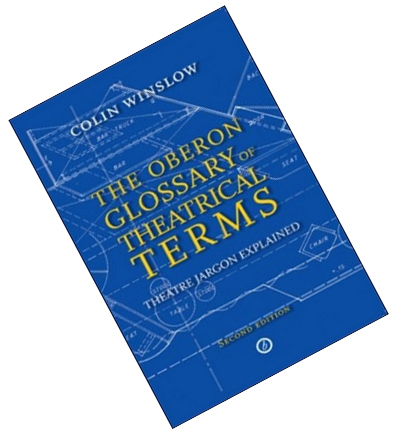Theatre jargon explained – from Ballyhoo to Chapography
Jargon is everywhere nowadays, including the wonderful world of theatreland. Our new feature helps translate some of the strangest words used in the industry

How many times have you found yourself in a conversation that you are unable to partake in due to a lack of jargon knowledge?
The Oberon Glossary of Theatrical Terms is a wonderful book chock full of theatrical jargon explanations.
Our new feature 'Theatre jargon explained' will serve up some of our favourite examples each week, starting this week at a very good place to start, the letters a to c.
Auguste – Although wearing elaborate costume and make-up, he is considered the straight man of circus clowns, and therefore frequently the recipient of custard pies and other humilitations.
Aunt Edna – 'A nice, respectable, middle-class, middle-aged maiden lady' imagined by the playwright Terence Rattigan (1911-1977) as epitomising theatregoers of the 1950s.
Ballyhoo – (n. and vb.) Swinging follow spots about energetically to create an invigorating effect.
Barnstormers – Travelling players who used to perform in barns and similar locations. Nowadays 'barnstorming' is a dergatory term for crude acting.
Born in a truck – Having theatrical parents. Refers to the cabin trunk commonly used by actors when touring, which presumably, could form an improvised crib when required.
Burnt cork– Rough and ready means of blacking the face or suggesting facial hair. (e.g Groucho Marx's moustache.) Usually homemade, cork was burnt with alcohol and applied directly to the face. Now recognised as carcinogen, it is no longer considered safe for cosmetic purposes.
Chapography (from chapeau: Fr. for hat) – The art of manipulating a large, ring-shaped piece of felt to look like different types of hat or headdress worn to impersonate historical or other famous people. Once a popular act in variety, rarely encountered nowadays.
Charabanc trade – Organised parties of theatregoers travelling in hired motor coaches, generally considered to be unsophisticated in their responses, but welcomed at the box office.
Comedians graveyard – The Glasgow Empire Theatre, demolished in 1963. Audiences here were noted for being particularly tough on English performers. In 1918, Mark Sheridan, famous for his comic sounds, was given such a bad reception that he shot himself after the show, making it almost literally 'a graveyard'.
Crash box – Container with pieces of metal, broken china and/or glass which, tipped into a second container, provides the sound effect of a crash.
The Oberon Glossary of Theatrical Terms by Colin Winslow is published by Oberon Books.












